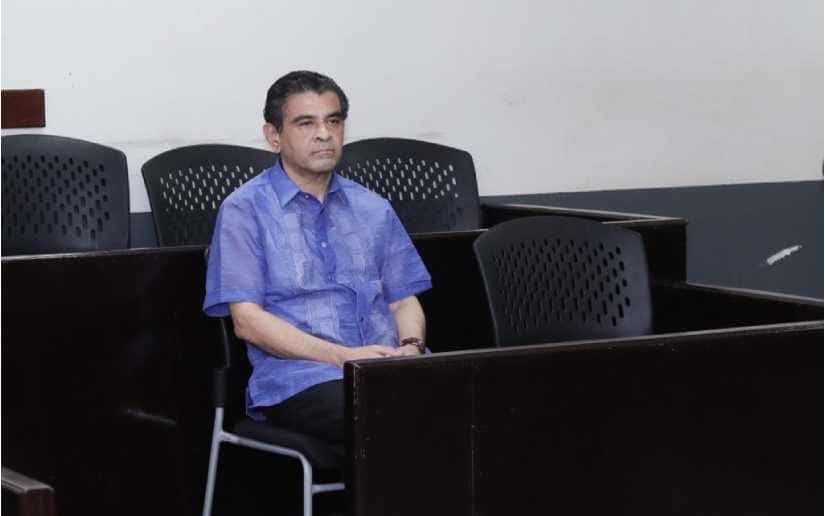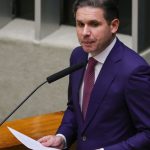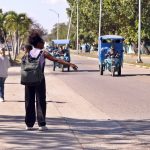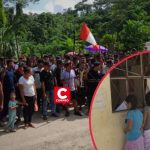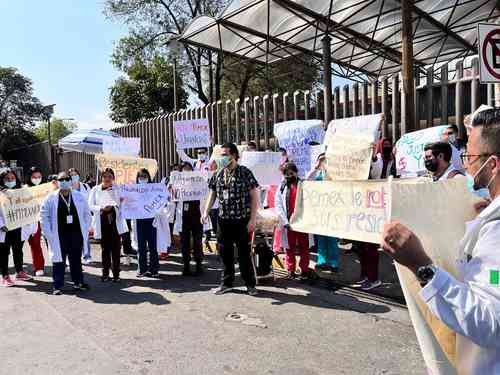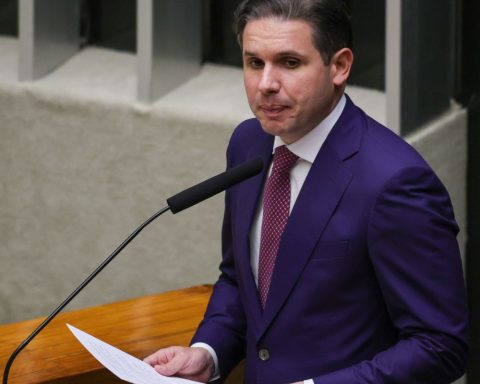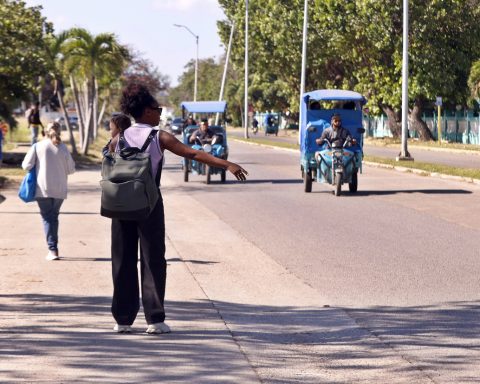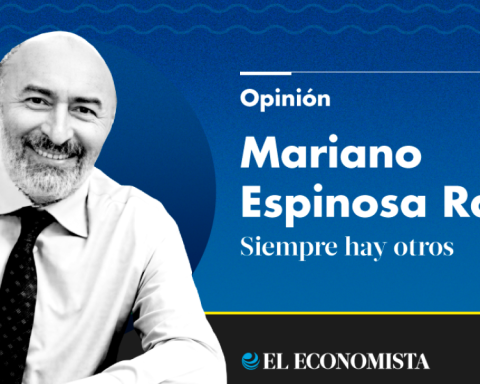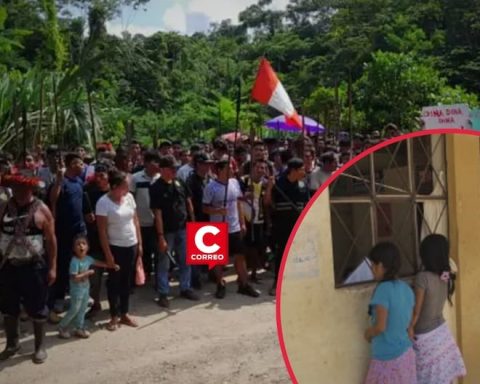The photograph of Monsignor Rolando José Álvarez Lagos -named person of the year by CONFIDENTIAL-with evident weight loss and paleness, sitting in a courtroom of the Managua courts, without his investiture as bishop, and after 116 days kidnapped by the National Police, was “shocking” and “painful” for the priest “Carlos ”.
The feeling, he assures, is shared with other religious in silence, due to the repressive escalation of the Government against the Catholic Church.
“Being able to look at him for the first time after he was arrested was a very painful situation. Seeing him, as we had not seen him before- in reference to his physical build-, already with an emaciated face, and it shows that his body already has weakness, perhaps due to the lack of medicines, lack of a good feeding. The confinement does not stop wreaking havoc on the body of the human being, ”reflected the Nicaraguan priest whom we will call“ Carlos ”to avoid reprisals against him.
The Prosecutor’s Office accused the bishop on Tuesday, December 13head of the Diocese of Matagalpa and apostolic administrator of the Diocese of Estelí, Monsignor Rolando Álvarez, for the alleged crimes of conspiracy to undermine national integrity and propagation of false news, indicated the Judiciary in a press release, accompanied by two photographs of the prelate, of whom nothing was known since August 19.
That day the Police stormed the Episcopal Curia of Matagalpa and transferred him to his parents’ house, in Managua, -under house arrest, made official this Tuesday- while his companions -six religious and one layman- were taken to the Directorate of Judicial Assistance (DAJ), El Chipote. All are awaiting their respective trials.
Ten days have passed since the judicial case – described as “cynical” and “infamous” by human rights defenders and the international community – against of the first imprisoned bishop in the modern history of Nicaragua.
The country’s Catholic hierarchy continues to remain silent. The priests are also afraid to speak, Father “Carlos” confesses, but internally they live with pain, suffering and impotence the situation that Monsignor Álvarez is going through.
He questions the CEN’s lack of belligerence
The priest questions the lack of belligerence of the Nicaraguan Episcopal Conference (CEN) regarding the kidnapping of Monsignor Álvarez and the imprisonment of ten more priests-two of them convicted-. However, he acknowledges that the Nicaraguan context is complex and any act could have consequences.
On December 19, Pope Francis He assured that the Holy See always tries to save the peoples, “and its weapon is dialogue and diplomacy” in reference to the situation in Venezuela and Nicaragua.
The position of the Supreme Pontiff and the CEN has been harshly questioned by human rights defenders who do not understand their silence in the face of an Ortega regime that has not given guidelines to achieve a peaceful understanding and, rather, has intensified the repression against the Catholic Church , accumulating almost 400 attacks since 2018.
The disagreement with “so much prudence” that the priest “Carlos” points out, was evidenced in a public letter addressed to Cardinal Leopoldo Brenes, signed by some thirty religious, in which they urged him to stop “being a pamphleteer who acts as a politician ‘to the tune they play’”.
The letter strongly questions the attitude of Cardinal Leopoldo Brenes. “Unfortunately, we see in you a lack of solidarity not only with your imprisoned and exiled brother bishops and priests, but with the entire Nicaraguan community suffering the oppression of this dictatorship,” the signatories said.
“While —they continue— Bishops Silvio Báez and Rolando Álvarez are paying a high price for their prophetic stance against the dictatorship, their silence screams conformism and indifference,” they said.
For father “Carlos” this discomfort is related to the secrecy that persists even within the institution. He assures that if they were informed about what is happening, they would better understand the position of their authorities. “
Nothing is said to us, nothing is reported to us. The only thing that remains for us, priests, is faith, the hope that sooner or later our bishops have to come out in front of this painful situation that the Catholic people are experiencing, ”he said.
He also pointed out that despite human pain there is the spiritual strength, and that as bishop, Monsignor Álvarez, maintains his faith and hope that good things come out of those difficult moments.
moved congregation
The parishioners are also moved. “María” congregates in a church in Matagalpa and assures that it was “painful”, “distressing” and “outrageous” to see Monsignor Álvarez with his face of pain. Although they believe in the power of prayer, he admits – along with other parishioners – feeling helpless for not being able to do anything else to help the bishop, who has been violated since he was deprived of his freedom and now, he is physically mistreated, lament.
The strength of this woman is in God, who will “act and change the situation”, while the actors of “these bad, perverse things” will have “their pay”, he said.
The prudence that the CEN has shown before the Government does not seem to be bearing fruit. This December 19, at a promotion for new Police cadets, dedicated to Gaspar García Laviana, a Spanish priest and guerrilla who fought against the Somoza dynasty and died in combat with the National Guard, Daniel Ortega attacked the priests again and bishops.
He accused them, without evidence, that some called for bloodshed in the context of 2018, when, rather, the churches were refuges for citizens who were victims of brutal repression. “Those priests, those bishops, and I say this as a Christian, I grew up in a Catholic, Christian family, but I learned over time that, after all, behind a cassock is a human being, the cassock is not makes no one holy, the habit does not make the monk”, he said.
For Ortega, Bishop Rolando Álvarez is a “bad priest”
Ortega praised the work of the priest Gaspar García in his defense of the peasants and criticized the position of the Catholic hierarchs during the Somocista dictatorship. “I never had respect for the bishops, I could not believe in the bishops, with some priests there was rapprochement, the exception was priests who had a Christian practice, like Gaspar García Laviana, who without being Nicaraguan had more commitment to the people , with the poor, with the peasants…”, said the dictator.
From the perspective of Father “Carlos”, Ortega tried to differentiate at his convenience between good and bad priests. He explained that for the dictator, the good priest is the one who listens to him, speaks good things about him and accepts everything that the Government sees as good.
Meanwhile, the priest considered bad is the critic, the one who tries to enlighten the minds of human beings for the common good, and who questions that there are benefits that only reach one sector and not the entire society, becoming injustice. Within this second whimsical classification of Ortega one could find Monsignor Rolando Álvarez, who has stood out for maintaining a prophetic message, says Father “Carlos”.
